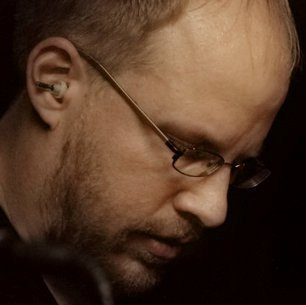I ran into an interesting post over at David Anthony Durham’s blog on science fiction…or more specifically, a post on why David’s not going to be writing science fiction any time soon. Of course the point David’s trying to make–using some incomprehensible prose from an article in New Scientist–is a good one: a lot of science makes no sense, or at least no sense to non-scientists. But what his post really got me thinking about was my own interests. I like science fiction a good deal; I’m a big Star Trek fan (especially the original), loved Star Wars, dig Asimov, Heinlein, Vonnegut. Aliens, spaceships, boldly going…I’m there. But I have to admit that when I really think about what I prefer, fantasy always wins out. Given a choice between, oh, some post-apocalyptic tale about a rogue computer and an epic fantasy with medieval cities and the forging of ancient weapons, I’m pretty much going to go with Option #2 most of the time.
Part of this, of course, is my own background–I grew up with Tolkien, Lewis, and LeGuin, and later on I got into things like Dungeons and Dragons and other role playing games (some of which I still enjoy to this day). My father read me The Hobbit for the first time when I was five or six. But that doesn’t explain all of it, because he also read me The Master Mind of Mars, we watched Star Trek together…you get the idea. It can’t all be about the stuff I liked as a kid. Part of it might be personal interests, too–I was an excellent student in English and history in high school, but math and science? Not so much. Then again, science fiction isn’t science, strictly speaking, or not exclusively so–much of it is about fantastic discoveries, exploration, that sort of thing, not necessarily the playing out of obscure theories on a fictional background. And besides, I enjoyed (and still do) all kinds of literature, not just the fantastic kind, in my English classes.
So if it’s not background, and not a particular aptitude for one subject or another, what is it? Ultimately I think the answer comes from what each genre tends to do–or what rut each genre has a tendency to get stuck in, to be exact. There’s no question that fantasy tends to fall into predictable patterns–swords, elves, dwarves, feudal societies, farmboys becoming kings, you know the drill. (These patterns aren’t always bad, by the way, as I’ve talked about elsewhere.) Relied on too much, this can get old real fast–though it should be said that fantasy has broadened pretty considerably, and urban fantasy ala Charles De Lint or Jim Butcher has shaken up the field quite a bit, even if that too can get old when overdone. But science fiction is no better when it comes to treading the same ground–especially in terms of tone. How much modern sci-fi do you know which bills itself as an “uncompromising view of the future”? Or a “chilling vision of our society”? Or a “terrifying look at an unforgiving world”?
Notice the constant? It’s all about the horror, the terror, the dystopia. Yes, it’s hard to find science fiction these days that doesn’t involve despair and looming death–and maybe that’s the problem. I’m something of an optimist by nature, but I’ve had my share of tragedy. And certainly fantasy has its share of sorrow and trauma. But I think I’d prefer to read about and write a world which doesn’t automatically end up in devastation and disaster, and it seems to me that modern science fiction has gone heavily in that direction, always believing that it’s serving the “truth.” But why? Why is it necessarily the case that we are doomed to disaster, any more than we are ensured a future of lollipops and cotton candy?
So all things considered, I think I tend to write fantasy rather than science fiction because I’d like a bit more balance in my fiction–and that means I would rather look at both good and evil, both triumph and loss, than inevitable destruction. And at the moment, I think that’s easier to find in fantasy than science fiction, with all sorts of exceptions and qualifiers granted. It’s not about the science–it’s about the dystopia.
And yeah, there’s also that whole D minus in Physics thing. I still don’t know what the heck my teacher was talking about.
Greg

